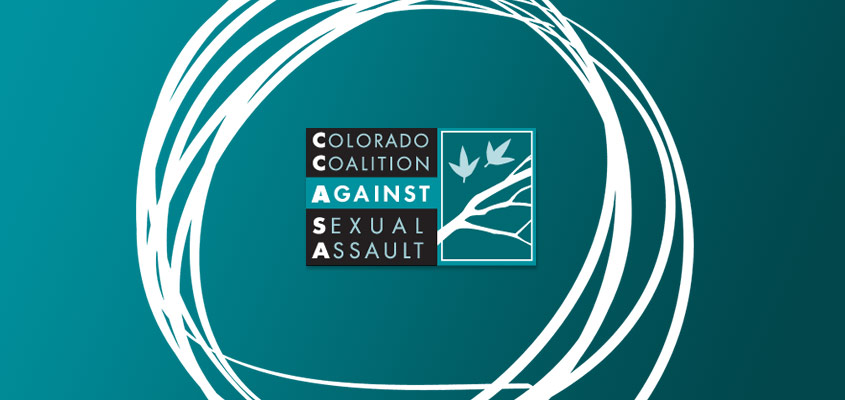By Meghann McCluskey, CCASA Blogger and Therapist at The Blue Bench
Warning: This blog post contains major spoilers for Season 2 of House of Cards
If you’re like me (and hundreds of thousands of other Netflix patrons across the world), you devoured Season 2 of House of Cards with maniacal abandon. Netflix doesn’t release specific numbers pertaining to their viewership, but it’s estimated that a hefty 16% of their 3.3 million subscribers tuned in to watch at least one episode of the second season when it debuted back in February. That’s a whole lot of people engrossed in the twisted lives of Frank and Clair Underwood – a conniving (and arguably sociopathological) politician and his manipulatively demure wife. Like it or not, big time shows like House of Cards have big time influence over public consciousness. So when HOC tackled the topic of sexual assault this season, you can bet I paid attention. The question is: Did House of Cards reify rape culture with its complicated portrayal of sexual assault, or did it debunk problematic rape myths and lessen rape culture’s magnitude?
I think this particular question calls for a rousing round of Rape Culture Critical Analysis. I’ll detract one point for instances in which HOC seems to promote sexual assault myths, and I’ll add one point for instances in which the show appears to defy such myths. Score cards ready?
- We first hear references to sexual assault in Season 2 when Clair encounters her perpetrator at a military awards ceremony. We learn that General Dalton McGinnis – now a decorated serviceman – raped Clair decades ago while the two dated briefly in college. Let’s give House of Cards its first point right off the bat by reminding viewers that survivors can be (and most often are) sexually assaulted by trusted acquaintances rather than strangers. And while we’re at it, let’s add one more point for HOC’s suggestion that Clair is still very much impacted by this rape despite the fact that it occurred so long ago. Clair’s intense reaction to running into her perpetrator accurately reflects the lifelong healing process and re-emergence of triggers that many sexual trauma survivors experience.
- When Clair discloses to Frank that General McGinnis is her perpetrator, Frank becomes enraged in her defense at the awards ceremony. He pounds bathroom walls with his fists, knocks over a lamp, and seems totally out for blood (which, if you know Frank Underwood, is something that should be taken very seriously). I’m certainly not condoning violence here, but I will give House of Cards another point for depicting a situation in which a sexual assault victim is believed and supported by her loved one. Despite their complex relationship, Clair is Frank’s wife. She was raped, and he is justifiably irate. Even when she ID’s her attacker as a man of considerable social standing, this does not detract from Frank’s unfettered acceptance of her story. With luck, this scene sends an implicit message to Netflix viewers that we need to believe rape survivors who come forward rather than dismissing them or blaming them for their assaults.
- A few episodes later, Clair does a live TV interview in which she is grilled about being a childless woman. The pushy reporter implores: “Have you ever been pregnant?” Clair spontaneously reveals that she once had an abortion, and her Communications Director scrambles for an emergency commercial break. Compelled to backpedal or risk damaging her husband’s political popularity, Clair duplicitously explains on air that her pregnancy and subsequent abortion were the result of a sexual assault (as viewers we are aware that this is not the case – Clair reveals privately that she has had not one but three abortions in her life, all of them originating from consensual sexual relationships). Clair then publicly names General McGinnis as her perpetrator. Now here’s where my scoring system gets a little cloudy. I’ll award HOC another point for depicting a main character bravely identifying her rapist during a televised interview. The tides are turning, but we still live in a world where sex offenders so often receive impunity, and it’s therefore refreshing to see this fictional perpetrator singled out and scorned. But I’ll detract a point for the convoluted means through which Clair discloses her rape. It’s an enduring myth that women often say they’ve been raped when they haven’t in order to gain an upper hand or seek revenge against those they accuse. In this episode, Clair isn’t lying about being raped, but she’s using her sexual assault to cunningly justify her impulsive decision to discuss her abortion on television. I’m afraid viewers absorbed in this show might conflate untrustworthiness with sexual assault since the two concepts already have a strong cultural link in American public discourse.
- As Clair wraps up her TV interview, an anonymous woman phones in to support Clair’s allegations and indicates that she too was sexual assaulted by General McGinnis. Enter Megan Hennessy – the caller who soon identifies herself as a US Marine Private formerly once under the general’s command. Megan quickly becomes the poster child for a bill championed by Clair that addresses the endemic problem of sexual assault in the military. As Megan is used as a pawn for Clair’s political ambitions, we watch her trauma-related symptoms morph from bad to worse. Megan tells Clair that she suffers from panic attacks, and in one poignant scene she spills her box of medication on the floor and frantically scoops up her assortment of pills. While Megan’s character may appear frail or melodramatic to some viewers, the show’s portrayal of her incapacitating post-traumatic stress and ultimate (unsuccessful) suicide attempt are sadly accurate. House of Cards gets another point from me for truthfully illustrating the deep pain and debilitation that many sexual trauma survivors endure each and every day.
- Season 2 progresses, and we see Clair stumping on Capitol Hill as she attempts to garner support for her sexual assault bill. As she ruthlessly manipulates politicians for votes, it becomes clear that Clair’s desire to pass the bill has far more to do with her own hunger for power than her desire to alleviate the problem of sexual assault. Clair’s unrelenting self-interest becomes evident during the final episode of Season 2 in which she scraps the bill altogether in order to forge a critical alliance with a Congresswoman. I’ll take away one last point here in HOC’s tally – as I’ve already suggested, a manipulative female lead character who uses sexual assault as a political platform for her own advancement makes me highly uneasy. In what ways might this made-for-TV power play feed into existing public opinions about women and sexual violence?
And that concludes this round of Rape Culture Critical Analysis. Looks like HOC managed to stay on the positive end of the spectrum with a grand total of three points. With luck, this season will do more good than harm when it comes to chipping away at the monolithic rape culture in our midst. Until, of course, we see what they have in store for Season 3…


Hello! I could have sworn I’ve visited this web site before but
after looking at many of the posts I realized it’s new to me.
Nonetheless, I’m certainly happy I discovered it
and I’ll be book-marking it and checking back frequently!